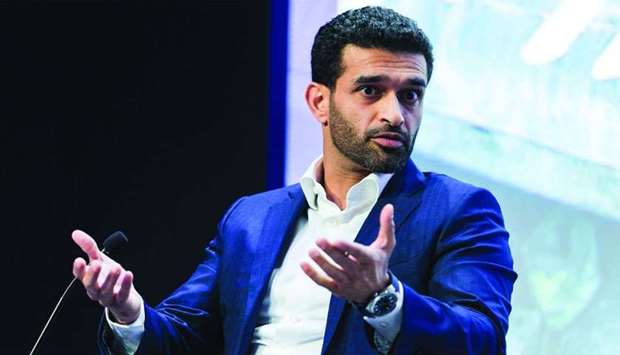The potential impact of mega sporting events on young people across the region, including the FIFA World Cup, was highlighted by Hassan al-Thawadi, secretary general of the Supreme Committee for Delivery & Legacy (SC) during the World Economic Forum on the Middle East and North Africa in Jordan.
Speaking during a panel session titled 'Radicalisation: Lessons from the Past', al-Thawadi said global events such as the FIFA World Cup Qatar 2022 had the potential to address the spread of radicalisation, rising unemployment and the marginalisation of communities.
"Mega events, such as the FIFA World Cup Qatar 2022, can play an important and often not recognised role in providing the platforms necessary for youth to unleash their potential, showcase their talent and achieve their goals and aspirations," said al-Thawadi.
"By giving youth such hope and opportunity, such events can create the positive environments conducive to limiting the rise and spread of extremist ideologies."
Al-Thawadi went on to reiterate Qatar's vision for the tournament as being one for the benefit of the entire region and an accelerator for the positive development of society.
He added: "Qatar's hosting of the FIFA World Cup – for the first time in the Arab world – is an unprecedented opportunity for this region. Accordingly, we have made a conscious effort from day one to ensure that it is a tournament that everyone in the region can benefit from, and have launched several legacy programmes to support this, including Challenge 22, Generation Amazing and the Josoor Institute.
"These programmes are not only giving Arab youth the opportunity to take part in supporting our efforts to deliver and host the tournament, but are also providing them with the tools and skills necessary for them to build a better future for the region and the world more generally."
The Challenge 22 innovation award is giving young entrepreneurs the chance to develop businesses which could boost Qatar 2022. One of the winners, ViaVii, was named by the World Economic Forum as one of the top 100 Arab start-ups. Meanwhile, Generation Amazing has reached more than 250,000 beneficiaries across the region and Asia, using football as a tool for positive social development. And the Josoor Institute, an academic centre for sports and events professionals, has helped to upskill more than 3,000 people since its launch.
Al-Thawadi also emphasised that the issue of radicalisation is one that faces the global community as a whole. Addressing the rise in political tension around the world, he highlighted the role that sport, particularly football, can play in bridging differences and promoting cultural understanding, stressing the need for unifying platforms – such as the FIFA World Cup – to bring people together.
Al-Thawadi also spoke about the need for collective action in addressing radicalisation, noting that individuals, institutions, organisations and governments all around the world must work together to tackle the issue.
The session, which was moderated by journalist Ghida Fakhry, was also attended by Abdullah Abdullah, chief executive of Afghanistan; Ahmad Iravani, president and executive director of the Centre for the Study of Islam and the Middle East; Anne Speckhard, director of the International Centre for the Study of Violent Extremism; and Latifa Ibn Ziaten, founder of the Imad Association for Youth and Peace.
Held under the theme "Building New Platforms for Co-operation", this year's forum focused on ensuring the region and global economy enters a new phase of globalisation.
More than 1,000 leaders from government, business and civil society participated in the forum, which took place on April 6 and 7.

